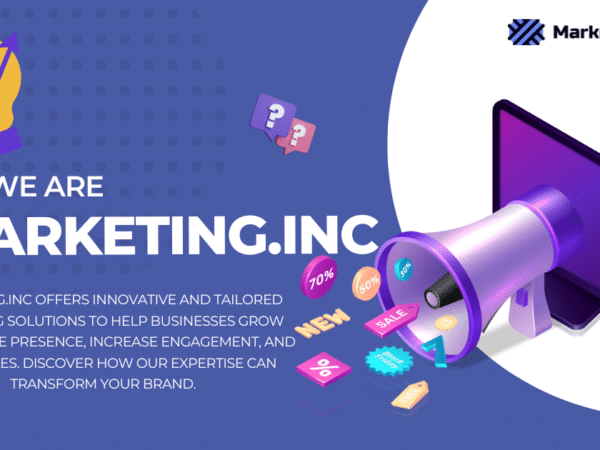AI (Artificial Intelligence) is the technology of the future, and businesses are quickly discovering that it can be instrumental in transforming their marketing strategies. The possibilities for AI-driven marketing are virtually endless, offering companies a wealth of opportunities to enrich customer experiences, personalize interactions with target audiences, and optimize their campaigns for maximum efficiency. In this article, we’re going to take a look at some of the best practices and examples when it comes to leveraging AI in your marketing strategy – so buckle up; let’s get right into it!
Table of content:
- Define Your Goals and Objectives
- Choose the Right Tools
- Create Content for AI Systems
- Monitor Performance
- Analyze the Results
- Implement Best Practices
- Real-World Examples
- Conclusion
- Define Your Goals and Objectives
What do you want to accomplish with AI-driven marketing automation?
Do you ever feel like you’re running in circles when it comes to marketing? It’s easy to get lost in the sea of data, worrying about whether your campaigns are reaching the right people or if your messages are even resonating. But imagine having a tool that could make sense of all that information for you and even help automate some of your marketing tasks. That’s where AI-driven marketing automation comes in. By defining your goals and objectives beforehand, you can work with the technology to create more targeted campaigns, boost conversions, and ultimately drive growth for your business. It’s an exciting time to be a marketer, with AI offering up new possibilities we couldn’t have imagined just a few years ago. So, what are you waiting for? Explore what this cutting-edge technology can do for you and see how it can help take your marketing efforts to the next level.
- Choose the Right Tools
Select an AI solution that fits your needs and budget.
Selecting the right AI solution can seem overwhelming, especially considering your needs and budget. However, you can find a solution that fits both with careful consideration and research. It’s essential to identify what problems you’re trying to solve and what specific solution or tool can do the job. Be aware of any potential hidden costs or fees with specific solutions, and make sure they align with your budget. By taking the time to choose the right tools, you can set your business up for success and efficient operations.
3. Create Content for AI Systems
Think about keywords, metadata, and other data points that can help inform your machine learning models.
As artificial intelligence continues to revolutionize industries across the board, it’s becoming increasingly important to ensure that the AI systems we develop are fed with high-quality content. But what exactly does that mean? Well, it starts with thinking carefully about the keywords, metadata, and other data points that can help to inform your machine learning models. This information allows the AI to understand and categorize the content it’s analyzing, making it increasingly effective over time. So, whether you’re developing AI systems for customer service or medical research, taking the time to carefully curate your content will help to set you up for success in the long run.
- Monitor Performance
Use analytics to measure success and make adjustments as needed.
In today’s business world, using analytics to monitor performance has become a necessity. Without measuring success, it’s hard to know what you’re doing right and what areas need improvement. By analyzing data, you can make informed decisions and adjust accordingly. These adjustments can be anything from altering marketing strategies to improving product offerings. In short, analytics allows you to not only measure success but to take action to continuously improve. Whether you’re a small business owner or a CEO of a large corporation, implementing analytics into your business strategy is the key to staying ahead of the game.
- Analyze the Results
Understand customer behavior from the data generated by AI systems.
Businesses today have access to an overwhelming amount of customer data generated by AI systems. While this data presents new opportunities for understanding customer behavior and improving business practices, analyzing it can be a daunting task. However, exploring the results can lead to invaluable insights into customer preferences, behaviors, and pain points. AI systems can help businesses understand not only what customers are buying but also why they are buying it. This understanding can result in more personalized customer experiences, improved products and services, and, ultimately, increased customer loyalty. It is clear that analyzing customer data from AI can be a game-changer for businesses looking to better serve their customers.
- Implement Best Practices
Look to industry leaders and adapt their strategies for success.
In today’s hypercompetitive business landscape, it’s essential to stay up-to-date with the latest industry practices. One way to do this is by observing and adapting the strategies of successful companies in your field. By looking to the leaders of your industry, you can gain valuable insights into what works and what doesn’t when it comes to achieving success. Whether it’s adopting innovative technologies or implementing novel marketing techniques, industry titans can serve as a valuable source of knowledge and inspiration. By implementing these best practices in your own organization, you can improve your efficiency, productivity, and, ultimately, your bottom line. So, take a cue from the best and start implementing their successful strategies today!
Real-World Examples
Several companies have successfully integrated AI into their marketing strategies. For instance, Netflix uses AI algorithms to recommend personalized content based on user preferences and viewing history. Amazon’s AI-powered product recommendations drive sales by suggesting relevant products to customers.
In conclusion, the proper implementation of artificial intelligence in marketing automation strategies can produce massive rewards for a business. No matter the size and scope of your organization – from small to large – if you wish to reap these rewards, it is essential to take the proper steps. To achieve success with AI-driven marketing, organizations must define goals and objectives, choose the right tools, create content customized for AI systems, monitor performance regularly, analyze any results gained from AI systems, and implement best practices gleaned from leading industry figures. Doing so can result in more efficient processes and operations through more significant customer insights and a plethora of new growth opportunities. Our team of experts can guide you in implementing AI in your marketing strategy to optimize your results. Connect with us today to transform your marketing efforts!








